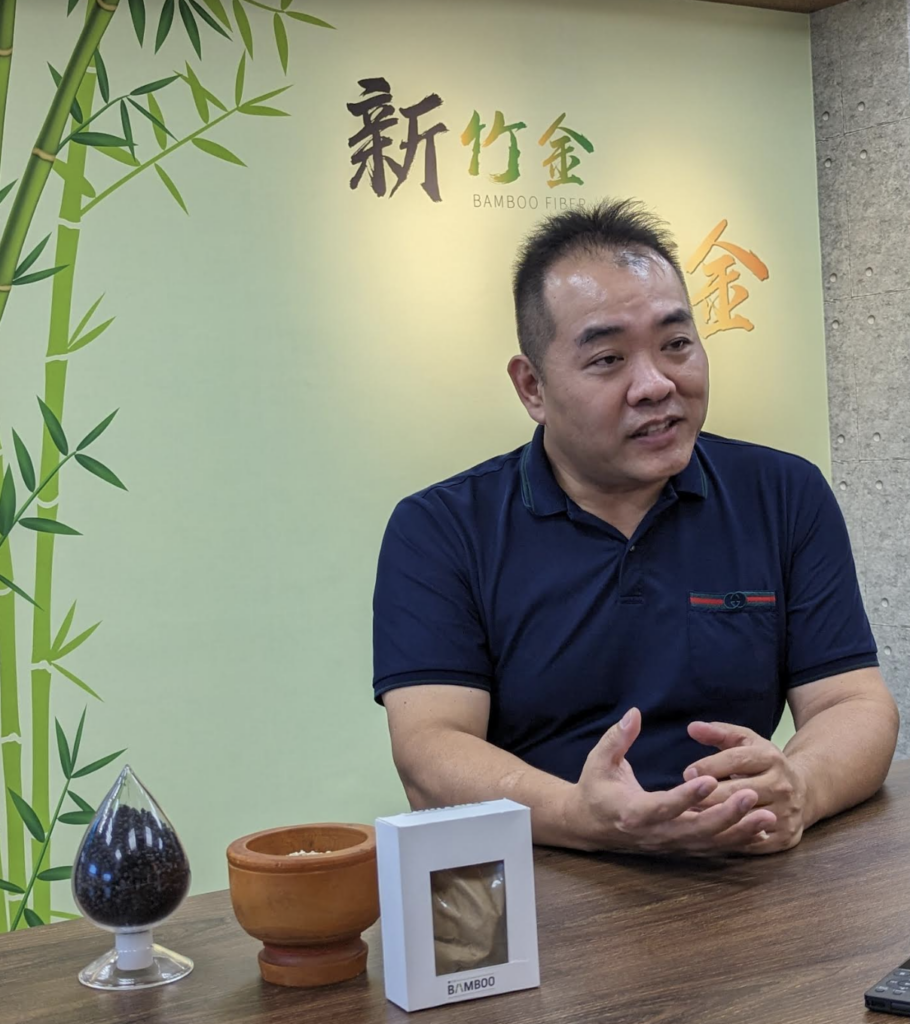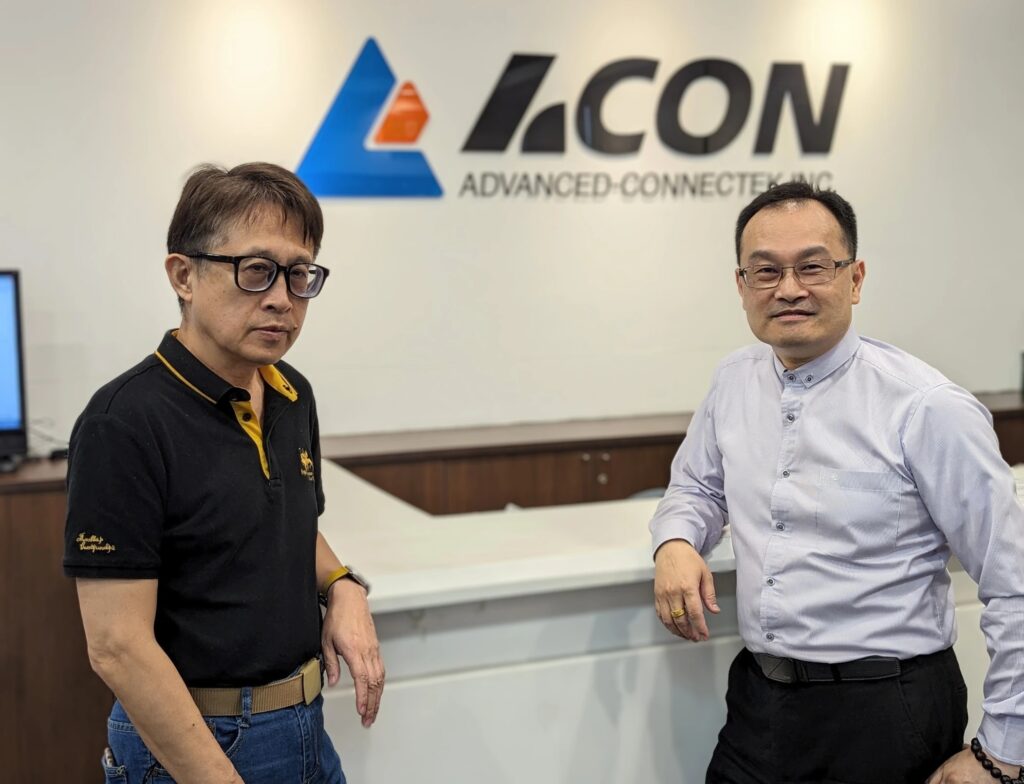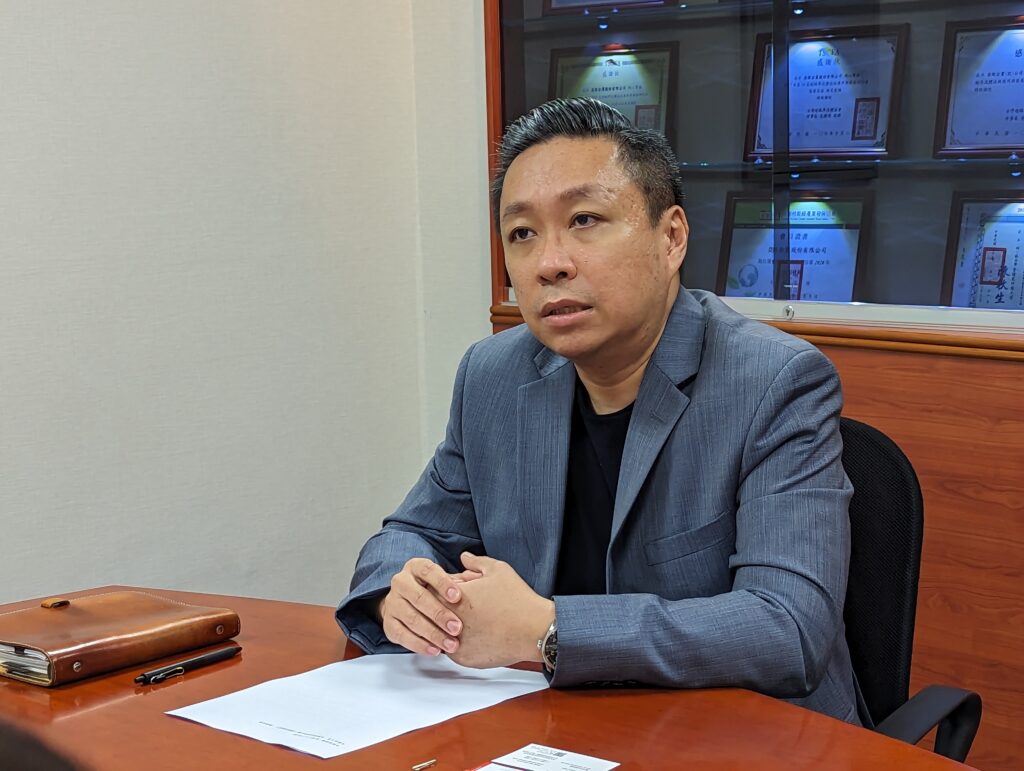With human life shrouded by the global climate crisis, more than 130 countries have announced that they will reach net zero emissions by 2050, and ESG has become a trending topic. Three years ago, Hsinchu Gold Bamboo2 saw an uptick in interest for environmental sustainability and used bamboo particles to develop bamboo straws, bamboo tableware and electronic packaging materials among other innovative products. Last year alone, 600 million bamboo straws were shipped worldwide.

Hsinchu Gold Bamboo2’s unique technology which prevents bamboo straws and tableware from getting moldy or having other odors is the primary reason why Hsinchu Gold Bamboo2 could quickly establish a foothold in the international market. Alex Shu, founder of Hsinchu Gold Bamboo2, remarked that bamboo will become a natural adhesive after being grounded into powder. Over and above removing moisture at high speed, micronizing bamboo powder enables the fusion with other raw materials to become bamboo particles for application in different fields, making it an innovative raw material for environmental sustainability.
Using AI to select bamboo enables Hsinchu Gold Bamboo2 to overcome restrictions on bamboo species selection
The key to successfully transforming traditional agriculture and turning bamboo into gold is to leverage AI technology. “The technology of making bamboo powder particles is not difficult, the key lies in the technology of selecting materials (bamboo),” Alex Shu gave an example, in order to reduce the carbon footprint of the products, the bamboo used in the research and development of Hsinchu Gold Bamboo2 products is currently from bamboo forests all over Taiwan, However, there are 58 bamboo species among Taiwan’s 186,000 hectares of bamboo groves. These bamboos not only vary in species but also differ in moisture content due to different geographic regions, storage times, and harvest years. This introduces numerous variables into the process of developing bamboo particles.
Prior to the introduction of AI, in the selection of bamboo species for product development, the process involved manual selection. Bamboo with a strong bamboo flavor, like green bamboo, and bamboo with tough nodes, like sweet bamboo, was discarded to prevent any residual bamboo taste in bamboo straws and tableware produced. This manual selection aimed to avoid issues where the bamboo powder might not be fine enough during the bamboo grinding process, causing bamboo particles to clump and significantly reducing the selection rate of bamboo.
After introducing Profet AI’s AutoML platform, intelligent AI can modulate the best bamboo powder formula through modeling according to variables such as bamboo production area, bamboo species, moisture content and hardness, bamboo color, etc., facilitating Hsinchu Gold Bamboo2 to develop bamboo powder of the same quality even if different bamboo species are used, breaking through the limitations of bamboo species and making the acquisition of raw materials for Hsinchu Gold Bamboo products more flexible.
AI modulates the best formula and process of bamboo particles, and the R&D efficiency is increased by 20% – 25%.
Besides resolving the issue of bamboo selection, Profet AI’s AutoML can also further predict the optimal formula and process of bamboo particles corresponding to bamboo powder when applied in different products, greatly shortening the R&D time and saving R&D manpower, thus improving R&D efficiency by 20% – 25%.
Alex Shu stated that bamboo powder is widely used in straws, lunch boxes, cup covers, tableware, electronic packaging materials, and medical supplies. These different products actually correspond to different production conditions such as injection molding and extrusion molding, which, in turn, require different bamboo particles. For example, bamboo particles required for electronic packaging materials can withstand higher temperatures than bamboo straws and tableware, and they also need to consider the electrostatic protection benefits and weak acid effects. In order to achieve these product characteristics, it is necessary to use bamboo powder with different formulas to produce these bamboo particles.
Profet AI successfully assisted Hsinchu Gold Bamboo2 in accurately predicting material formulations. To achieve the outcomes of being produced under what conditions, the product being able to withstand certain temperatures, possess specific hardness and brittleness, raw materials have to be matched with bamboo powder in a ratio that will yield a characteristic closest to the characteristics required by the product. In the past, when manually concocting bamboo particle raw materials for products, it was necessary to produce test strips made of 15 different raw material ratios for continuous testing in order to yield a characteristic closest to the expected product characteristics. With the assistance of AI, as long as test strips made of 5 different raw material ratios were produced for testing, the expected product characteristics could be achieved. This shortened the R&D testing cycle from two weeks to less than one week while increasing the accuracy of the raw material ratio for bamboo particles by twice that of manual concocting.
AI applications are expected to be extended to manufacturing to improve yield in the future
Introduced at the end of 2022, Hsinchu Gold Bamboo2, which had been applying AI for less than a year, initially intended to use AI for customer management. For instance, they aimed to use AI models to predict warehouse inventory levels, determine when to restock specific products, and assist in setting suggested prices for new products. However, after in-depth discussions with Profet AI consultants, they realized that integrating AI into the R&D process would significantly move the needle.
Alex Shu pointed out that despite having developed many innovative bamboo products, Hsinchu Gold Bamboo2 is more like an IC designer in the manufacturing industry, constructing a product development model and outsourcing it to manufacturers for production. Introducing Profet AI enabled us to avoid R&D pitfalls, quickly achieve product development goals, and improve the accuracy of product testing.
Moving forward, Hsinchu Gold Bamboo2 hopes to collaborate with production manufacturers to introduce AI into the process of testing products to finished products. In addition to improving product yield, they also hope that through AI, traditional agriculture can break through existing frameworks and progress towards mass production, standardization and repeatability, and gain a new foothold in the blue ocean of environmental sustainability.

